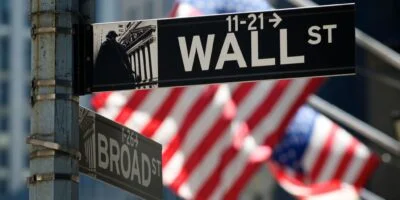The Battle for Business Autonomy

The marketplace can be thought of as a battlefield, with the primary objective to win over customers in order to safeguard and expand one’s market share. As such, it is no surprise that Sun Tzu’s The Art of War has long received attention from business strategists eager to capitalize on new opportunities and devise cunning plans for surpassing competitors and swaying market trends. According to Sun Tzu, “The expert in battle moves the enemy, and is not moved by him.”
The dynamic nature of market-based systems requires dedication, diligence, and the ability and authority to change direction at a moment’s notice – and do so with grit. As such, another wartime related outlook that has been applied to business strategy is the adoption of a VUCA mindset. VUCA is a military acronym referring to a time of Volatility, Uncertainty, Complexity, and Ambiguity.
Savvy leaders know they must adjust quickly to changing realities by leveraging ideas, insight, experience, and expertise. And a VUCA mindset asserts that one must be aware that such an environment or circumstance may occur at any moment. Fortunately Sun Tzu says “In the midst of chaos, there is also opportunity,” and “Opportunities multiply as they are seized.”
To be sure, capitalism will swallow up any who fall prey to competitive inertia and will reward those who are proactive and productive in relation to value creation. At its core, capitalism is about the fundamental right to act in one’s self-interest regarding the use of one’s property and resources. It also grants the right to own and control (as well as be held accountable for) that which is derived from one’s actions. Indeed, just as enlisting in the military is not for the faint of heart, neither is entrepreneurship or business management for the risk averse or simple minded.
The term for strategy is derived from the ancient Greek word stratēgia which means “Generalship.” To be a general, one must have both the rank and the respect to determine what action to take and which resources to employ. And, prior to entering any battle, one must believe it is a fight worth having and be certain that the opportunity costs have been given careful consideration. Sun Tzu says “He who wishes to fight must first count the cost.”
Organizational success is determined, to a large extent, by the strategic behavior of leaders and yet, reportedly, industry executives often have little time to dedicate toward strategic thinking. Time is therefore a precious commodity in today’s fast-paced business environment but also so is the ability to take action unencumbered.
Daniel Pink, an expert in motivation studies, has conveyed autonomy to be a core component for empowering individuals, which can lead to an increase in both engagement and innovation. And, in accordance with behavioral studies, intrinsic motivation is derived from a desire to be self-directed in relation to one’s vested and valued interests.
In Henry Mintzberg’s The Rise and Fall of Strategic Planning, strategy is described as the process of planning and positioning based on one’s preferred direction and desired outcomes. Sun Tzu says “One mark of a great soldier is that he fights on his own terms or fights not at all.”
Such a stance is powerfully conveyed in Ayn Rand’s novel Atlas Shrugged when Hank Rearden proclaims “I work for nothing but my own profit—which I make by selling a product they need to men who are willing and able to buy it. I do not produce it for their benefit at the expense of mine, and they do not buy it for my benefit at the expense of theirs.”
What to produce, what to consume, where to go, whom to associate with, and how we engage and interact are all decisions we prefer to have authority over. The same is also true for business. What a company produces, who its intended audience and target market is, how it operates and allocates resources, and so on and so forth, should be determined by the organizational structure of a firm and its managers.
Tough decisions will need to be made and at times the status quo will need to be challenged, but business leaders must have the authority to do so just as individuals do in their daily lives.
Big mistakes can occur, like choosing the wrong partner (business or personal), and unintended consequences will likely happen but without experience, there can be no advancement.
Active learning requires actions and the ambitions of entrepreneurs, the objectives of managers, and the interests of investors are all necessary for societal growth and economic development. For this reason, business leaders along with all those who are part of the productive process for making things happen should be praised, for the weight of wealth creation is on their shoulders.
Yet, over the past several decades, the business battlefield has shifted from the economic realm vying for buyer attention to the political realm vying for bureaucratic concessions. Business leaders must be prepared for congressional hearings more than competitive pressures and entrepreneurial aspirations increasingly require prior approval, or must adhere to the scrutiny of external assessment bodies.
Occupational licensing, government agencies, and newly instituted rating systems have all been impeding economic freedom within the US, and a VUCA mindset seems to be needed most now given that new policy implementation can infringe upon any (past, present, or pending) business transaction.
As such, some of Sun Tzu’s quotes may also serve as a worrisome warning rather than strategic advice for the future of business. Sun Tzu is credited with stating “Keep your friends close, keep your enemies closer,” as well as “To know your enemy, you must become your enemy.” Perhaps it is no surprise then that cronyism is on the rise and true forms of capitalism are being suppressed by the power of political purse strings.










